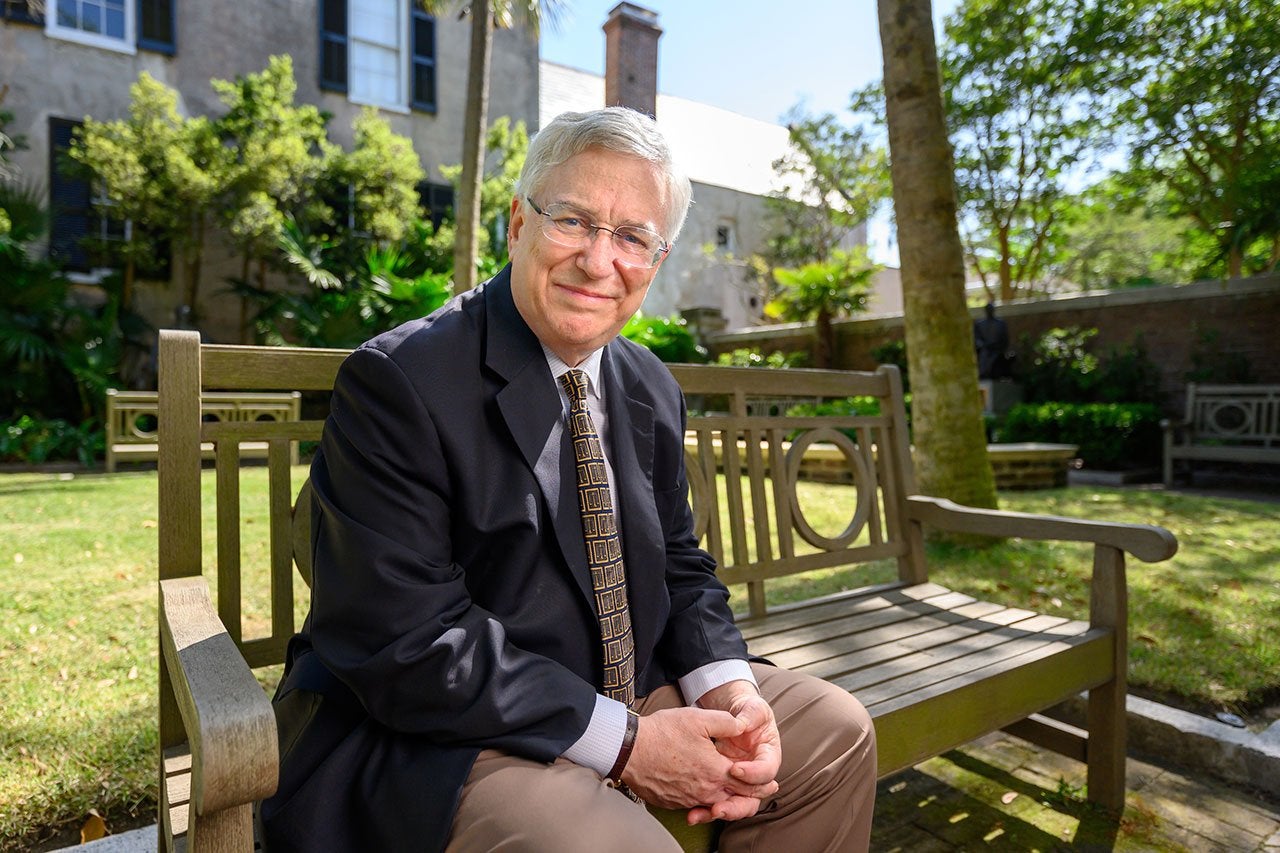Vision and perseverance will be the cornerstones of Judge Richard Gergel’s address to College of Charleston graduates from the School of the Arts, School of Sciences and Mathematics and the Graduate School during commencement exercises in the Cistern Yard at 4 p.m. on May 7, 2022.
Drawing from the life of local civil rights activist and CofC alumnus J. Waties Waring, Class of 1900, Gergel will talk about the path before the Class of 2022 and how their time at the College has prepared them for what’s to come, much in the same way it did for Waring. As a judge of the U.S. District Court for the Eastern District of South Carolina, Waring played an important role in the early legal battles of the American civil rights movement. Gergel, whose chambers are in the J. Waties Waring Judicial Center not far from campus, wrote a book about Waring titled, Unexampled Courage: the Blinding of Sgt. Isaac Woodard and the Awakening of President Harry S. Truman and Judge J. Waties Waring.
RELATED: CofC Podcast: How Alumnus Waties Waring Helped Shape the Civil Rights Movement
“I plan to speak about Waring’s life and how he’s not much different from College of Charleston students then and now,” says Gergel. “The skills he learned at the College prepared him to serve on the bench, but the College also fostered a curiosity that filtered into several parts of his life.”
Gergel himself also knows about the value of determination and preparation.
Born and raised in Columbia, South Carolina, Gergel’s grandparents immigrated from Poland to the U.S. before World War II broke out. Sadly, the Jewish family left behind several relatives who perished in the Holocaust. The war also thwarted Gergel’s father’s plans to attend college, forcing him to instead start a business to support his family.
RELATED: Vonnegut Scholar to Reflect on Literary Journey at Commencement
His family’s experience as well as attending a recently desegregated high school, fostered Gergel’s passion for civil rights.
“I also inherited the lawyer gene from my father, who would have loved to have been a lawyer,” he says.
For college, Gergel set his sights on attending Swathmore outside Philadelphia. His father took him for a visit in the middle of a snowstorm, and then took him to his second choice, Duke University, on a crisp fall day. For a southerner, the choice was clear — as his father well knew.
Gergel attended Duke and then continued on to Duke University School of Law, where he focused on litigation, civil rights and constitutional law. His choice of schools was heavily influenced by the fact that his then girlfriend and now wife, Belinda, was at Duke completing her doctorate on history with a focus on women’s higher education.
Upon graduation, Gergel began working in the legal field in his hometown. In 1983, he became partner of his own firm, Gergel, Nickles and Solomon.
In 2003, Gergel represented the South Carolina Education Association and public school teacher Maggi Smith Hall in a civil rights case that went to the 4th Circuit Court of Appeals in Richmond, Virginia. He succeeded in defending the lower court’s decision that the school district had acted illegally in firing Hall for exercising her right to free speech when she criticized reckless spending by her superintendent and the school board.
RELATED: Popular Tourism Professor to Give Commencement Address
Gergel’s reputation led to him being confirmed in 2010 to serve on the U.S. District Court for the District of South Carolina. Since assuming his post, Gergel’s most well-known case was the trial of Dylann Roof, who was sentenced to death for the racist slaying of nine people at Mother Emanuel AME Church in Charleston.
His impact, though, extends beyond the confines of the legal world. Gergel, who is good friends with former CofC President Alex Sanders, was instrumental in efforts to establish Jewish studies at the College.
“I remember our first meetings were on the front porch of one of the College’s houses on Glebe Street,” says Gergel, who gives a lot of credit to the vision of the Jewish studies program to Marty Perlmutter, who led the program from its inception until his retirement in 2018. “Out of that, we have one of the premier Jewish studies programs in the U.S. and a beautiful building.”
In recognition of Gergel’s contributions to the College and South Carolina, he will receive an honorary Doctorate of Humane Letters.




